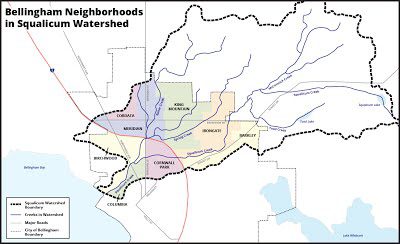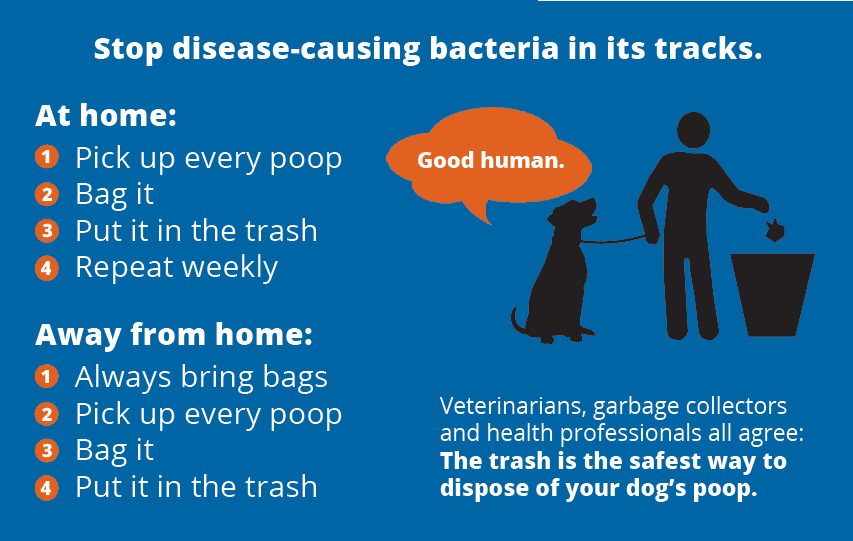Whatcom County faces a widespread threat from disease-causing bacteria from animal poop. Fecal coliform bacteria, an indicator of mammal or bird poop in the water, is found in many local creeks, lakes, and beaches. This bacteria indicates the likely presence of other disease-causing organisms like roundworms, E. coli, giardia, and more. When water is polluted with poop, contact with the water or eating shellfish from the water can make you sick.
One dog’s poop carries enough bacteria to pose a health risk. Whatcom County dogs generate 30,000 pounds of poop every day — the same weight as three African Elephants! One dog can produce enough fecal coliform bacteria in one day to close 15 acres of shellfish beds.
Help make our beaches and parks safe to play in — from your own backyard!
When it rains, disease-causing bacteria in your dog’s poop runs off into drains and ditches and travels miles from your home to surrounding creeks, lakes and beaches. The solution to keeping our waters clean, our families healthy, and our shellfish farmers in business is SO easy — but we all have to be part of the solution.
Why Squalicum Creek?

The Squalicum Clean Water Project works to reduce contamination from Squalicum Creek’s number one pollutant: fecal coliform from dog poop. Every urban creek in the City of Bellingham has high levels of fecal coliform bacteria from dog poop.
In 2015, the City of Bellingham launched the We Scoop campaign to educate dog owners who live in the Squalicum Watershed about the impacts of dog poop and its proper disposal. The project reached neighborhoods in the lower Squalicum Watershed — Birchwood, Columbia, and Cornwall Park.
In 2016, RE Sources launched the Squalicum Clean Water Project in collaboration with the City of Bellingham. The project connected with neighborhoods in the upper Squalicum Watershed — Cordata, Meridian, King Mountain, Irongate and Barkley.
Project goals:
- Inform people about the high levels of fecal coliform in Squalicum Creek, and one of its primary sources: dog poop.
- Educate community members on proper and timely disposal of dog poop on trails, in parks, and at home.
- Motivate people to share their knowledge and inform others about the issue.
Project outcomes:
- 200 people signed the Poop Pledge. People pledged to always pick up, bag, and throw away their dog’s poop, whether in parks, on trails, or at home. By taking the pledge, each participant did their own small part to help keep our beaches and parks safe to play in — from their own backyards.
- 10 Poop Patrol events at four parks in the Squalicum Watershed: Cornwall Park, Little Squalicum Park, Squalicum Dog Park, and Broadway Park. More than 700 PILES of dog poop were flagged during these Poop Patrol events, illustrating the widespread problem of poor poop pickup practices.
Read a complete report. For more information on how to properly dispose of pet, read the pet waste best practices post.

